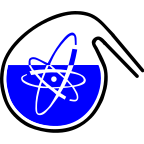Speaker
Description
The americium isotope Am-241 is formed during the storage of plutonium via beta-decay of Pu-241 with a half-life of 14.33 years. Due to its accumulation in existing stocks of civil separated plutonium in Europe, and its relatively high specific power of 0.114 W/g, Am-241 has been proposed for use in radioisotope power systems (RPS) and is under consideration by the European Space Agency (ESA) as an energy source for future European space missions. The requirements for a stable solid form are very diverse with respect to storage on earth, operation in space and safety performance in case of accidents and post-accident scenarios. Our group studied several ceramic forms containing significant specific Am-amounts (such as uranium-stabilized dioxide, phosphate, or aluminate).
In this context, AmVO3 and AmVO4 were prepared by a solid-state reaction and their room-temperature crystal structures were solved by powder X-ray diffraction combined with Rietveld refinement. Spectroscopic (Raman) and microscopic (Scanning Electron Microscopy) studies were carried out in order to check the purity of the samples. The oxidation states of americium were confirmed by High-Resolution X-ray Absorption Near-Edge Structure (HR-XANES) technique. The stability of AmVO3 and AmVO4 under self-irradiation and heat treatment in inert and oxidizing atmosphere was tested and discussed relative to the available literature data and to other americium-containing ceramics.

